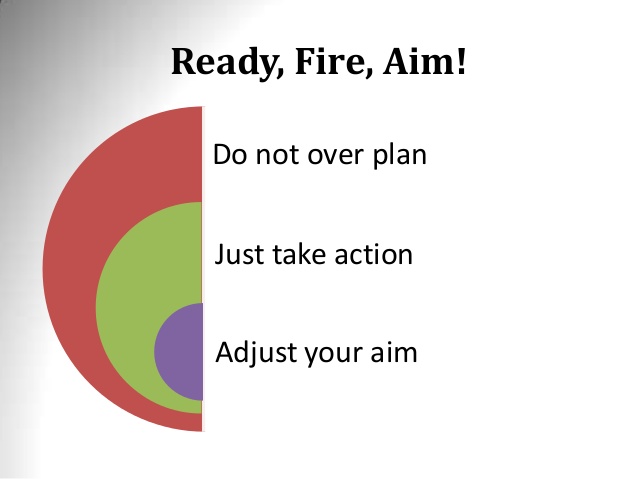Discovering > Predicting
Many of us are convinced that the crucial early accomplishment in the creatively entrepreneurial process of building something new is producing the Plan.
That is the first step in corporations and has been their model for a long time. Rushing to complete the Plan is a practice most other institutions—schools, non-profits, governments—and many individuals have taken up.
It seems a necessary practice in corporations, this immediate production of the Plan. Because they have many creative initiatives and projects underway, of course each needs a Budget; fiscal responsibility demands it. And to establish a Budget, each project needs a Plan of what is to be built and the resources needed to build it.
That means that when the team is most ignorant about what they could be doing to develop the opportunity—an ignorance that always exists at the start—they have to Predict what they are going to build so they can produce a Plan to arrive at the Budget, so they can get started.
And since all of the environments and communities and markets where opportunities are found are highly complex—made up of systems and networks of inter-related entities that are continually adapting to each other, always changing, always becoming, and often becoming what no one predicted—then the dynamics of an opportunity are constantly changing while the Prediction and the Plan provides us with a static view, as well as an uninformed view.
It’s true that increasingly the most innovative corporations are challenging the tightest strictures of the Predictive model, and so this presentation of the role of the Plan in corporate innovation is perhaps a bit overstated. But it serves as a useful contrast to how experienced and successful entrepreneurs and creative professionals set out Discovering what they will create, rather than making a Prediction.
When skilled entrepreneurs want to develop the most useful understanding of a new opportunity, they practice the ancient proverb: Don’t study it, get used to it.
So don’t fall prey to a bias for planning but adopt a Bias for Action instead. To help you make your way, I offer proven Bias for Action strategies.
Ready Fire Aim is the best start.
The conventional Ready Aim Fire makes the Plan the priority. But Ready Fire Aim says just get started, pay attention to what is happening as you act, then take your next step in accordance with the new wisdom you’ve just gained.
Ready Fire Aim appreciates that a body in motion tends to stay in motion and that building something of value is a momentum play.
So don’t study, take action. You have an interest, or an inclination, or a gut feeling, about an opportunity, so just act on it. And then keep it up.
There are useful reasons to consider these first steps as Wondering While Wandering. It reminds us of the importance of looking at what others have looked at and seeing what no one else has seen. The open-ended and circuitous searching that comes of wandering, and continually asking new questions from our wondering, assist in that purpose by increasing the chances we come upon the opportunity from a new angle.
Another useful aspect of seeing your first steps as Wondering While Wandering is the playfulness the language invites. A playful perspective can be a very creative one, perhaps a unique one.
Find Friends Fast should be the reasons for some of the first action steps you take. Be on the lookout for others with similar or complimentary interests, or with interesting vantage points. Announcing that you’ve begun your Discovery will often result in new friends finding you. And when you practice a little servant leadership with these first friends, when you are genuinely interested in helping them and their Discovery, you are growing strong ties and a generative network of potential strategic allies.
Fail Fast, Fail Often, Fail Cheap, it’s everyone’s mantra these days, because there is so much wisdom to it. It means that we can just get started, because we have given ourselves permission to take false steps along the way, and because we know we get smarter when we do.
Look for the Ball on the 10 yard line Without the structure of a Plan, we can be opportunistic and create advantage from that early easy victory you stumble across that helps you gain momentum.
Don’t ignore Planning. At some point you will Discover the most promising iteration of the opportunity and determine it is time to develop and build it, calling for the Plan to get the resources you need. Then you must be continually Planning to serve your entrepreneurial action; be careful of the Plan that restricts it.



